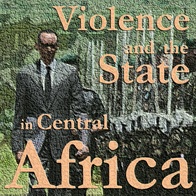
Politics as usual: women, media and the UK general election 2015
Politics has historically been dominated by men, and women have only relatively recently been elected to the UK Parliament in significant numbers. In order for women to be effectively represented in the political domain, they must also be adequately represented in the public discussion of political affairs that takes place in the news media. The ways women are depicted in news sends out important messages about their place and role in society and therefore, if women are absent or marginalised in political news, this reinforces their marginal status in the political process. Historically, women have struggled to achieve much visibility in electoral coverage, and by drawing upon data from the Loughborough Communication Research Centre’s real-time analysis of national broadcasting and press coverage, we can see that the 2015 election was no different.

Democracy for our Digital Future (Part II): The battle for privacy, citizenship and a new digital commons
Anthony Barnett, founder of openDemocracy, opened the discussion on digital freedoms on an optimistic note by predicting that the UK will have a codified constitution in the next 25 years and can therefore become the first major democracy to harness the participatory potential of the web to found a new constitutional settlement. He laid out three pressing issues for democracy in the digital age: i) What does it mean to be a person? ii) How do we address the corporate power of tech companies? iii) How do we define what we have in common? There is no need to reinvent the wheel when it comes to legal protections against state surveillance, suggested Carly Nyst of Privacy International. We have an …

Democracy for our Digital Future (Part I): Seven reasons why ‘We, the People’ should take charge of constitutional change
We are in a curious and uncertain period for the British state, its antiquated constitution and ways of doing politics. A number of serious challenges are on the horizon and it is unclear how much longer the political framework of the Westminster system can remain intact. The traditional attitude of the British elite has been to ‘muddle through’, introducing reform in a piecemeal manner in response to popular demands for change, while doing its best to preserve the core features of a monarchical system based on executive dominance of a ‘sovereign’ parliament via royally acquired prerogatives and patronage. A huge gulf exists between the empowered governance made possible by digital technology and the antiquated reality of the Westminster system. In …

‘Is the EU doomed?’ by Jan Zielonka
“Interesting times await us in any case.” That is the enigmatic and yet telling prognosis Professor Jan Zielonka extracts from an array of convoluted developments in recent European politics. Surveying sharp discrepancies in national employment levels, debt crises, anti-establishment political parties, and creeping disengagement against the backdrop of constant cacophony, Professor Zielonka explores the divergent effects of integration, the changing role of state actors and the prospects of the European Union in the not-so-distant future.

The Burundi Crisis beyond the third Term (3/3): Regional Implications
The important attention the Burundi crisis has received from the international media shows not only concerns with the safety and future of millions of Burundians but also fears of a regional contagion. Among the key questions are the regional support of president Nkurunziza, the likelihood of a foreign intervention, the lessons for the power-sharing model of peace-building Burundi incarnated, and possibilities for regional and national actors to solve the crisis.

The Burundi Crisis beyond the third term (2/3): local grievances, ethnicity, and the economy
The question of the constitutionality of a third term is absolutely central in the present crisis. The protesters have repeated their view that the constitution does not allow for a third term and expressed their fear of a carving up of the 2000 Arusha Peace agreement. The issues around the third term and Arusha have been widely discussed in the media and other essays. The roundtable tried to take a slightly different viewpoint and explored the key issues of the present crisis beyond the question of the third term: local grievances and post-war reconciliation and integration, the economy (and especially agriculture and aid), and whether the “ethnic factor” is still relevant.

Populism in an FPTP system: UKIP may still succeed if they play the waiting game
Coverage and analyses of the recent British general election of 7 May have focused predominantly on the surprise victory of the Conservatives, the poor showing of Labour, and the close to clean sweep of the Scottish National Party (SNP). The performance of the UK Independence Party (UKIP), meanwhile, was generally perceived to be disappointing for the party of Nigel Farage. Indeed, it has been argued that, despite the high expectations of the past years, UKIP fell well short of causing a ‘Purple Revolution’. At the end of 2014 the party were trending at around 20 per cent in several opinion polls with some excitable elements in the media claiming the party could win as many as 40 seats in the general election. Given this narrative was just six months before the election, their final result of just one seat compounded the apparent failure of Farage’s ‘People’s Army’ to mobilise.

The Burundi crisis (1/3) : (local) forces in presence
When president Nkurunziza announced his intention to run for a third term, serious unrest exploded in the streets of Bujumbura. In the last three weeks, violent clashes with the police have triggered fears of a new civil war and destabilisation of the entire African Great Lakes region. So far, the international community has been unable to calm the situation and 100,000 Burundians have already fled the country. The Oxford Central Africa Forum hosted a round-table on the 15th of May to examine the causes of the current situation and discuss the prospects for peace and democracy in Burundi and the region. It gathered six researchers who have conducted fieldwork in Burundi. We present some of their analysis and findings here in a short series of three articles. In this first post, we explore the forces present on the ground.









